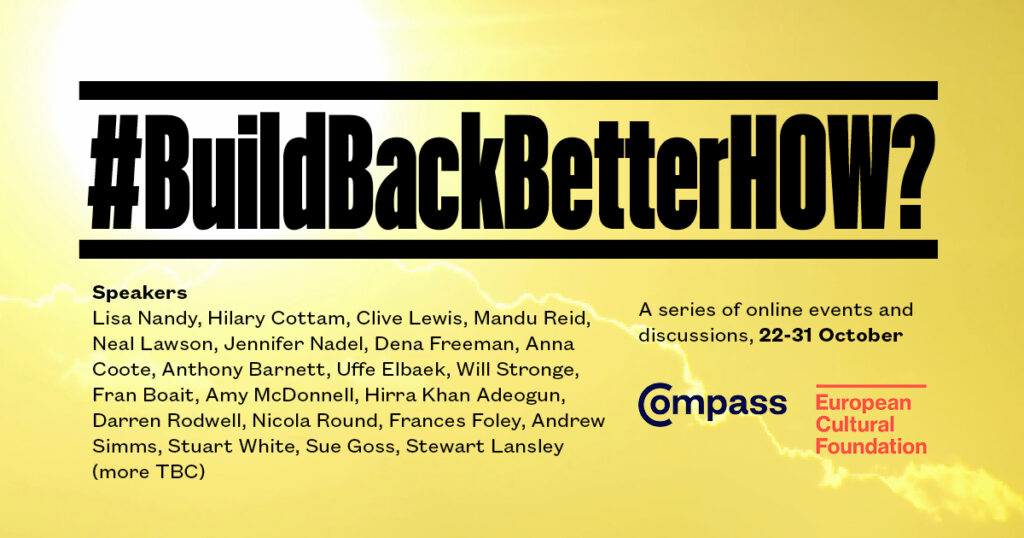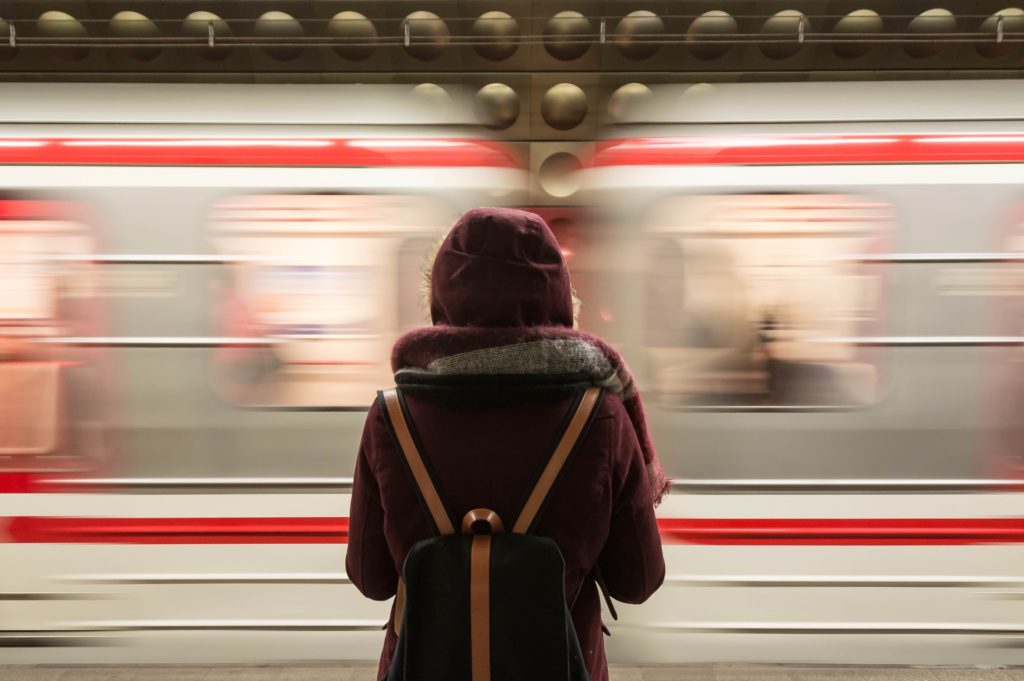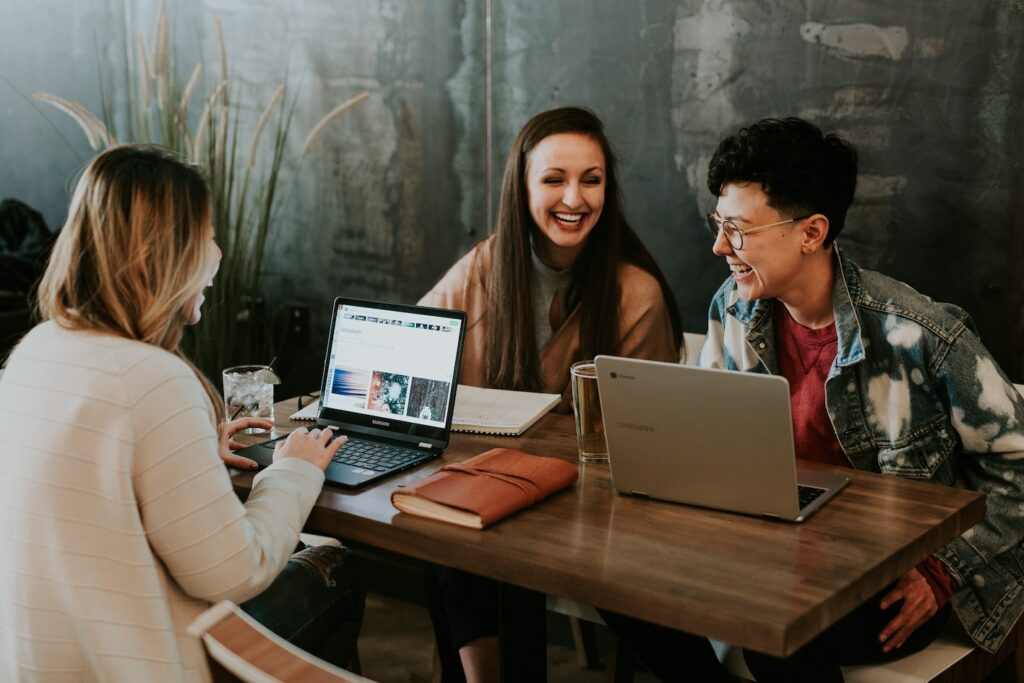Occasionally, everyone seems to alight on the same slogan – and it takes off. The energy, the alliteration, the sense of optimism and determination of Build Back Better has seen it adopted by politicians, civil society campaigning organisations and neighbourhood groups across the world.
Everyone seems united in the conviction that we need to come out of this crisis in better shape than we went in; that we need to use this moment of urgency and emergency to emerge fitter, smarter and more confident in dealing with future challenges. Joe Biden, Boris Johnson, and the UN all picked up on a phrase that some have traced back to a Japanese response to disaster risk reduction because it captures the mood of a resilient public.
But for all the fervour of the slogan it remains enigmatic. If Biden, Johnson and dozens of different charities and campaigns are all using it, does it have any coherence? For us at Compass, we are impatient to move past the slogan – and delve into the nitty-gritty.
We wanted to know: what does Building Back Better look and feel like? So we planned a series of events, set over the course of 10 days, during which we would lift up concrete examples and stories of what was happening. We took our cue from Change:How? – two events we ran back in 2013 and 2015, which gave us a much-needed injection of energy, but also some real practical tips and tricks to carry on building… We hope to do the same again, in these challenging times.

We begin from the understanding that, like many of the dreams we work towards, someone, somewhere is already doing it – and doing it well. All across the UK, and across the world, building back better began in the early stages of the crisis – and it hasn’t stopped since. In the earliest days of the pandemic, people leaped into action – first to respond to what was necessary, but at the same time, to develop ingenious, creative and sustainable solutions to longstanding problems.
It has become a cliché to say that the virus has acted like an X-ray, exposing the fractures and weaknesses in our political and social systems – and piling yet more pressure on them. Yet at the same time as addressing the urgency of the present, individuals and institutions have also been healing and recasting systems to be stronger over time.
Take the multiple international examples of opening up (not closing down!) streets to playing, running, cycling or sitting out. The initiatives were widely welcomed – and so organisations like Playing Out Bristol and Paris Sans Voiture spotted their chance and began to build the infrastructure that would protect this for good. Or the local fightbacks against the advertising which underpins the primacy of cars, which go hand in hand with these campaigns. And then comes the connective work of linking up these neighbourhood initiatives to create the lasting leap to a low-carbon economy and society
TAKE PART IN OUR WEDNESDAY SESSION ON RAPID TRANSITION

Or the well-documented cases of community organisations who, whilst rallying to prevent food insecurity, have now begun digging deeper, into the root cases. They were not content to paper over the cracks of food shortage in communities, and seek more sustainable solutions, which start from the neighbourhood communality and reciprocity we’ve seen through the crisis. At the same time as responding to the precarity of now, they’re busy sowing the seeds of security for the future.
In so doing, these initiatives have identified the need for new processes, new infrastructure and a new culture of doing and deciding. Citizen Alliance Networks sprung up to make permanent the shift in relationship between the council and the citizen. Based on reciprocity, trust and faith in others’ expertise, these alliances demonstrated the possibility of a new way of working for councils and communities – which had direct benefits for local residents.
TAKE PART IN OUR THURSDAY SESSION ON CONNECTING THE COMMUNITY
Grasping the moment to show how these processes could be formalised, the pre-pandemic upsurge in deliberative democracy has continued throughout this crisis, finding new form in citizens’ assemblies set up to chart a way out of this emergency. Integrating these new practices into the fabric of local government should ensure that participation is not woolly or ‘nice to have’ – but a permanent part of policy making processes.
JOIN OUR FRIDAY SESSION ON COLLECTIVE DECISION-MAKING
Amidst all this public activity, however, this crisis has been marked by confinement, too, sealing citizens in their homes and blurring the boundaries between public and private. People juggling work, caring responsibilities, domestic duties and wanting to make time to help their communities have felt caught in the grip of an economic system with no slack built in.
This has forced the question of work, time and autonomy up the agenda, confronting us all with the benefits and burdens of our current model. Ideas such as a Basic Income have seemed less fanciful at a time when the government has demonstrated its ability to underwrite wages and protect the most vulnerable from destitution. Is it time to share work around more effectively – and even the moment for a 4 day week? And for workers on the frontline of the crisis – ‘key’ to our survival as a society – we’ve seen an outpouring of support – though the fight for financial stability and bearable working conditions continues…
SIGN UP TO OUR TUESDAY LIVE CALL ON REBALANCING OUR LIVES

At the heart of all this is a question about where power lies. The crisis has been global – and challenged our vision for globalisation – making the necessity of navigating its tensions and frictions all the more urgent. How do we preserve the intimacy and agility of the local, but collectively build globalised solutions to increasingly global threats like pandemics and extreme weather events?
JOIN OUR THURSDAY SESSION ON GLOBALISATION
The crisis has tested the centralised model of government and found it wanting: not just as a matter of justice, but also of efficiency. This year, we’ve seen the rise of regional leaders, well-versed in the particularities of their cities and regions, and emboldened by the crisis to step into their power, to save lives and livelihoods. We’ve seen that the best leaders are as aware of their vulnerabilities as their responsibilities, and have faith in the capacity of citizens to do the right thing. The structural implications of this – the pressing need for devolution and decentralisation – cannot now be denied.
JOIN OUR SATURDAY SESSION ON LEADERSHIP
How, then, do we help these seeds grow, create the right environment for them to flourish, and bring them into relation with one another to form a healthy ecosystem? We start by understanding them better – what values motivate them, why they’ve worked (and why they didn’t) and how they could be developed, progressed, replicated and scaled. This is a task we’ve set ourselves over the coming six months – and we are asking for your help too.
Sign up to the events, share your stories, chip in to help us continue this work and send us your feedback.
Join us over the course of the next 10 days as we dig into these examples, harvest the fruits of the last few months and get on with the work of building the ecosystem in which all of this can grow and thrive.
Hope to see you there!
